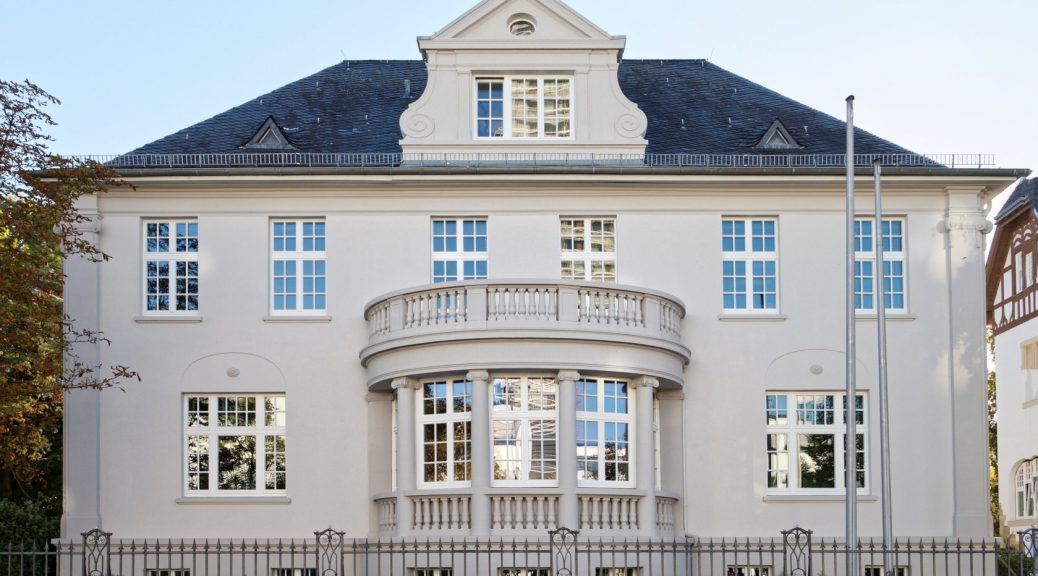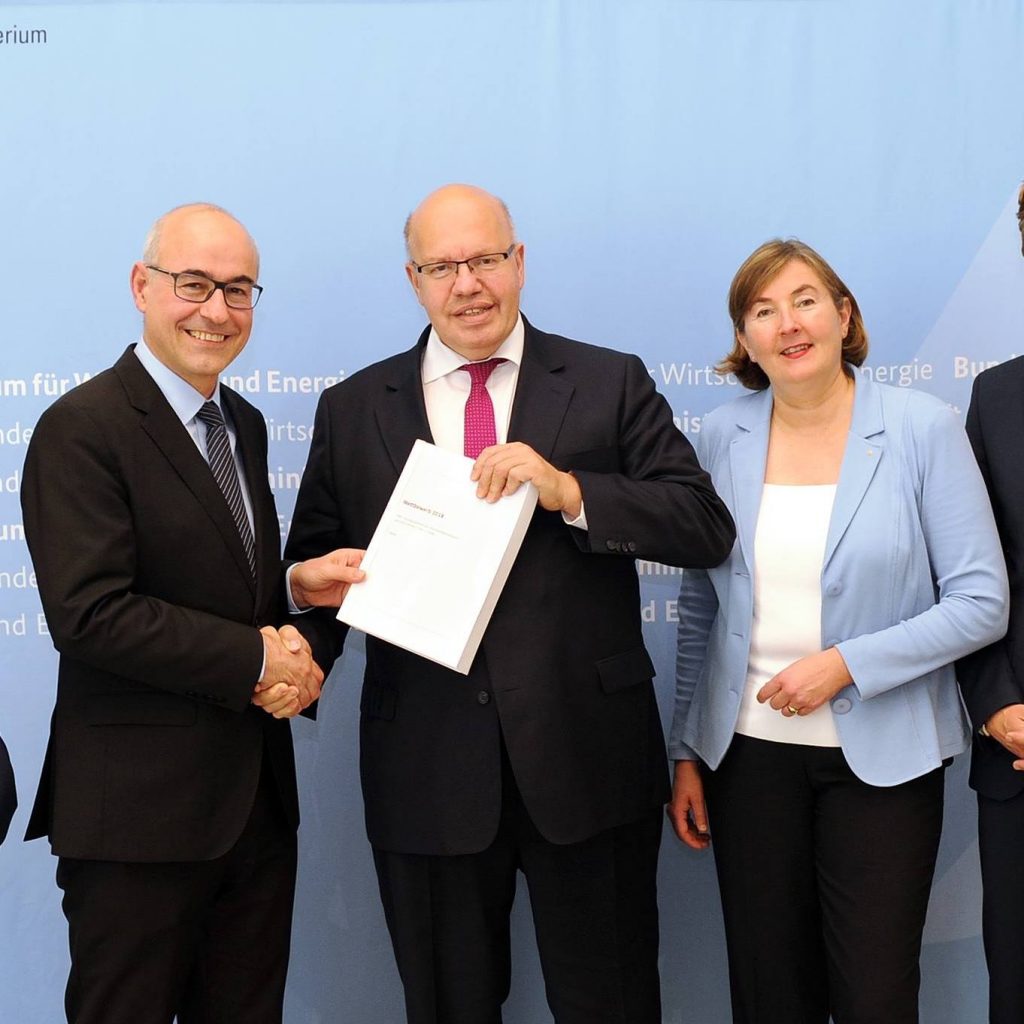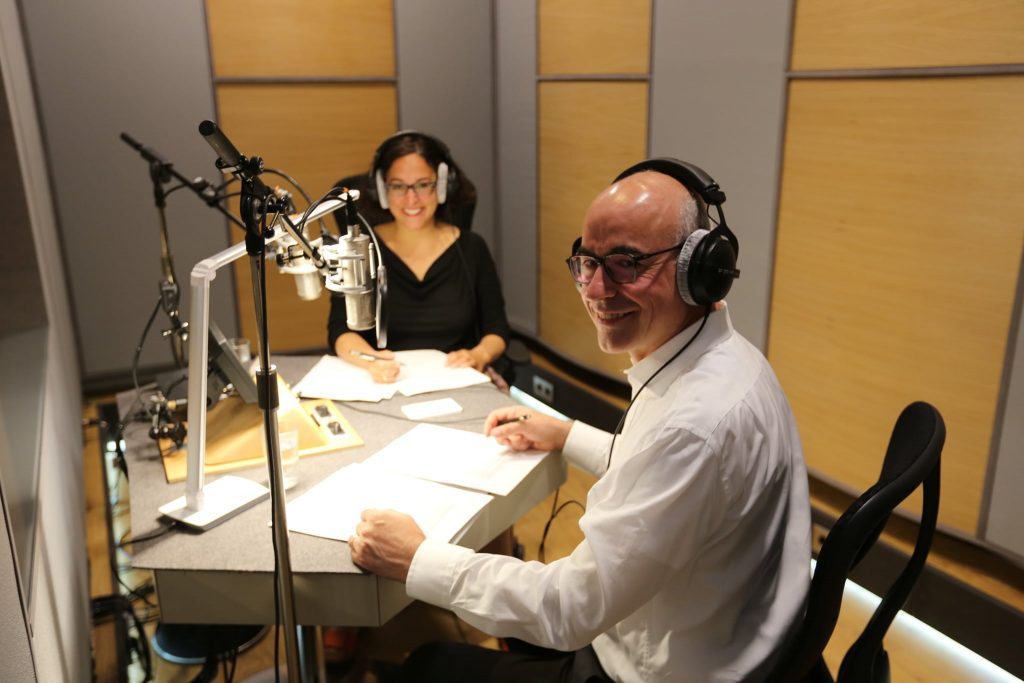
Monopolies Commission: Competition 2020
The Monopolies Commission advises the German Government on competition policy issues. Today it presented its 23rd main report – each time a source of impulses and ideas for antitrust law. For the D’Kart-Blog, Dr. Klaus Holthoff-Frank, the Secretary General of this independent body, gives an overview of what the Monopolies Commission has made the subject of its deliberations this time.
What are the topics?
The Monopolies Commission sees competition in Germany and Europe currently threatened by three developments in particular: Firstly, the Corona crisis poses a lasting threat to economic stability. As a result of recession and structural changes, concentration will increase in many markets. In addition, the state is intervening in the economic process in a variety of ways. Secondly, the market power of the leading digital groups will continue to increase as a result of the digitalization drive that will accompany the crisis. Thirdly, China, which supports and influences the actions of state and private companies as part of its economic policy, is placing an increasing burden on European companies in the domestic market.
Competition in the Corona Crisis
The Corona crisis will change the German economy forever. In order to avoid lasting damage to market structures and to mitigate the consequences of the crisis for the labour markets, the federal government, the federal states and local authorities are intervening massively in the economy through financial aid, guarantees and equity investments in companies. In the lock-down and reactivation phase, companies have also formulated a need for cooperation and coordination, in some cases more intensively. All this will have an impact on competition. It is to be expected that there will be an increase in concentration overall and also in individual sectors of the economy, with the result that the intensity of competition will decrease. The direct state influence on companies is growing.
In the Corona crisis, the Monopolies Commission recommends that antitrust law be applied without any concessions in substantive law. It may be appropriate in the crisis to apply cartel law flexibly in the case of temporary cooperation agreements between companies. This does not apply to merger control. In contrast to cooperation agreements, which can be terminated rather easily after the crisis, positions of power once attained through mergers would remain permanently at the expense of competition and consumers. With the instrument of a rescue merger, the applicable law also allows for an appropriate reaction in the crisis. The Monopolies Commission proposes to extend the extension of the examination periods in merger control, which already applied from March to May 2020, until the end of 2020, as a renewed increase in the number of notifications is expected in the second half of the year.
With regard to the state rescue packages for companies, the Monopolies Commission urges that the distorting effects on competition, especially of selective aid measures for individual companies, be taken into account. Aid to Deutsche Bahn AG harms competition in the transport sector if it does not also benefit competitors, for example by granting aid for investment in rail infrastructure. State shareholdings in companies such as Lufthansa should be accompanied by pro-competitive conditions and a plan for the resale of the state shares. The Monopolies Commission shares the European Commission’s view that the conditions and requirements in the case of state shareholdings in companies must be stricter than in the case of pure financial aid. It would be good if the Federal Government were to set up a committee of independent experts to advise it on the development of strategies for the exit from crisis-related state shareholdings.

Abuse control in the platform industry
The digital push that comes with the Corona crisis will further strengthen the market power of the leading digital groups, which has long been viewed critically. In the view of the Monopolies Commission, the EU Council Presidency offers Germany an opportunity to play an active role in shaping the further development of the European regulatory framework for the digital markets envisaged by the European Commission.
With regard to competition problems related to market power, there are several areas of concern. These include the criteria for determining market power in digital platforms. In addition, it deals with the approach to behaviour that affects the market structure because individual markets are permanently “tipped” or because more or less unassailable “ecosystems” are created across markets. Similarly, a decision must also be made on the procedure to be followed if the market structure has already been permanently consolidated in favour of one platform. In the first-mentioned cases of an impaired market structure, the Monopolies Commission considers it sensible to first observe German case practice and, if necessary, to consider regulation for the European level on this basis.
In the event that the market position of large platforms has become permanently entrenched, the Monopolies Commission proposes a special Platform Regulation. The regulation should subject dominant platforms to a ban on self-preferencing and to stricter interoperability and portability obligations in line with requirements of data protection law. Furthermore, the Regulation could include remedies for abuses of market power with lasting effects on the market structure and for violations of the additional obligations of dominant platform companies laid down in the Platform Regulation.
A further problem to be resolved is that although the competition authorities have extensive powers to provide information, they may encounter considerable difficulties in using these powers in proceedings. It is therefore advisable to tighten the procedural obligations to cooperate in cases where the authorities have made all reasonable efforts to investigate.
Chinese state capitalism as a challenge for the European market economy
Chinese companies play an increasingly important role as competitors to companies in Europe. China is currently the EU’s second largest trading partner after the US and the EU is China’s largest trading partner. With its “Socialist Market Economy with Chinese Characteristics”, China is pursuing a hybrid economic model that contains both state and market economy elements. More than in Europe, the Chinese state intervenes in the economic process to achieve its industrial policy objectives.
In order to avoid competitive disadvantages for European companies, there has for some time been an increased discussion about reform possibilities in European foreign trade and competition law. It should be noted that the influence of third countries on the economy is already subject to rules. In cross-border trade, European companies are protected by anti-dumping and anti-subsidy instruments. Although the EU competition rules are not directly applicable to measures taken by third countries, they are nevertheless applicable to the behaviour of third country companies in the EU. When assessing the market position of such companies in abuse and merger control, it can also be taken into account that a third country is behind them.
Gaps in protection exist where third countries provide subsidies which give companies a competitive advantage over companies not subsidised by third countries in their operations in the EU and which may subsequently gain market share at the expense of these competitors. For example, in order to circumvent anti-dumping or countervailing duties, companies subsidised by third countries can relocate their production to the EU and sell their products here. The same applies if they provide subsidised services, since services – unlike goods – cannot be covered by foreign trade instruments. Competitive disadvantages also exist when companies subsidised by third countries are able to submit better bids than their non-subsidised competitors due to the subsidy in company acquisition or procurement procedures.
It is true that the EU benefits from subsidies financed by the Chinese taxpayer, which result in low-priced inputs or consumer goods for the manufacturing industry or European consumers. However, the understanding of competition in the EU, which is shaped by the European treaties, also includes a competitive level playing field for companies operating in the internal market. To this end, the EU internal market is subject to state aid control. However, this is not applicable to third country support measures with an impact on the internal market.
In order to close the existing gaps, the Monopolies Commission recommends the introduction of a third-country aid instrument, which would put third-country subsidies and state aid by EU Member States on an equal footing as far as possible. In contrast to the European Commission’s proposal, which in its White Paper on ensuring fair conditions of competition with regard to subsidies from third countries proposes three sub-instruments, the Monopolies Commission is thus in favour of a single instrument. The sub-instruments proposed by the European Commission would also relate to subsidies within the meaning of the anti-subsidy regulation and sectoral competition law, whereas the instrument proposed by the Monopolies Commission would be aligned with the state aid regulation. Such a third-country aid instrument, which could be drafted as an EU regulation based on Art. 103, 109 in conjunction with Art. 352 TFEU, would ensure that all economic support measures by states that benefit companies in the EU internal market are treated equally. This would reduce the self-discrimination that has existed up to now with regard to state aid.
In addition, in cases of acquisitions of undertakings and Member State procurements, a standstill obligation should be applied to all parties involved, i.e. the procedure should be suspended pending the examination of third country aid. This would prevent the subsidy from flowing to the seller in cases of company acquisition or, in the case of procurements, to the body responsible for the tendering body, which would then have to impose a possible countervailing duty on this indirect beneficiary.
What else: Do we need an exemption for hospital mergers?
In Germany, there has been a long debate about whether efficient hospital structures require greater consolidation of the hospital sector and whether the merger control by the Bundeskartellamt makes consolidation more difficult and should therefore be changed. According to the ideas of some actors, the 10th amendment to the German Competition Act (GWB) should be used to facilitate mergers that are considered particularly desirable from a health policy perspective. There is talk of an exemption for hospital mergers in merger control. The Monopolies Commission rejects this proposal. Admittedly, it should not be ignored that merger control in hospitals meets some difficulties. The effects of hospital mergers in terms of reducing (quality) competition must be weighed against the quality-enhancing effects. Hospitals with low case numbers tend to have less medical routine and poorer staffing and medical-technical equipment. A number of indications suggest that hospital mergers (and possibly also hospital cooperations) can have quality-enhancing effects, at least in individual cases. It should be possible for the competition authorities to take a closer look at these effects than is currently possible. The Monopolies Commission therefore recommends that the balancing of competitively induced quality changes and quality advantages resulting from synergy effects be included in the GWB in the form of an efficiency balancing clause for hospital mergers.
In the assessment of the case practice of the competition authorities and courts, the topics discussed include market definition and the determination of market power in the case of advertising blockers, the possibilities of abuse control under Art 102 TFEU in the case of market-dominant platforms, cooperation in the expansion of fiber optic cable with the participation of Deutsche Telekom, the antitrust control of central marketing in the German Bundesliga and narrow best price clauses.
In addition, the Monopolies Commission analyses the status and development of corporate concentration and company-specific price premiums as indicators of market power. While the cross-sectoral concentration of companies in Germany has remained largely constant over the period 2007 to 2015, the turnover-weighted average price premiums in industry rose by 17 percent between 2008 and 2017 and by 14 percent in the services sector.
A personnel change in the Monopolies Commission
Dr Angelika Westerwelle was involved for the last time – she left the Monopolies Commission on 30 June 2020 after three terms of office, i.e. after 12 years of dedicated work. Angelika Westerwelle’s successor is the economist (Munich, Berlin, Harvard Business School) Pamela Knapp, who is a member of supervisory bodies of various European groups, including the Supervisory Board of LANXESS AG.

The Monopolies Commission’s new podcast: “Cast4COMPetition
For the first time, the Monopolies Commission has produced a podcast to explain the contents of the main report in a comprehensible manner (in German). In an interview with journalist and moderator Elif Senel, the Chairman of the Monopolies Commission, Achim Wambach, explains the contents of the main report in three blocks, which can also be called up and listened to individually: Corona and competition, China’s state capitalism, and football, hotels and hospitals – competition policy in action.

Dr Klaus Holthoff-Frank has been Secretary General of the Monopolies Commission since 2012.
The Monopolies Commission is an independent statutory advisory body to the German government, focussing on matters of competition. The legal basis can be found in sections 44 et seq. of the German competition act. The current members of the Monopolies Commission, traditionally composed of two academics and three business representatives, are Prof. Achim Wambach, Ph.D. (Chairman), Pamela Knapp, Dagmar Kollmann, Prof. Dr. Jürgen Kühling and Dr. Thomas Nöcker. For further information see www.monopolkommission.de.